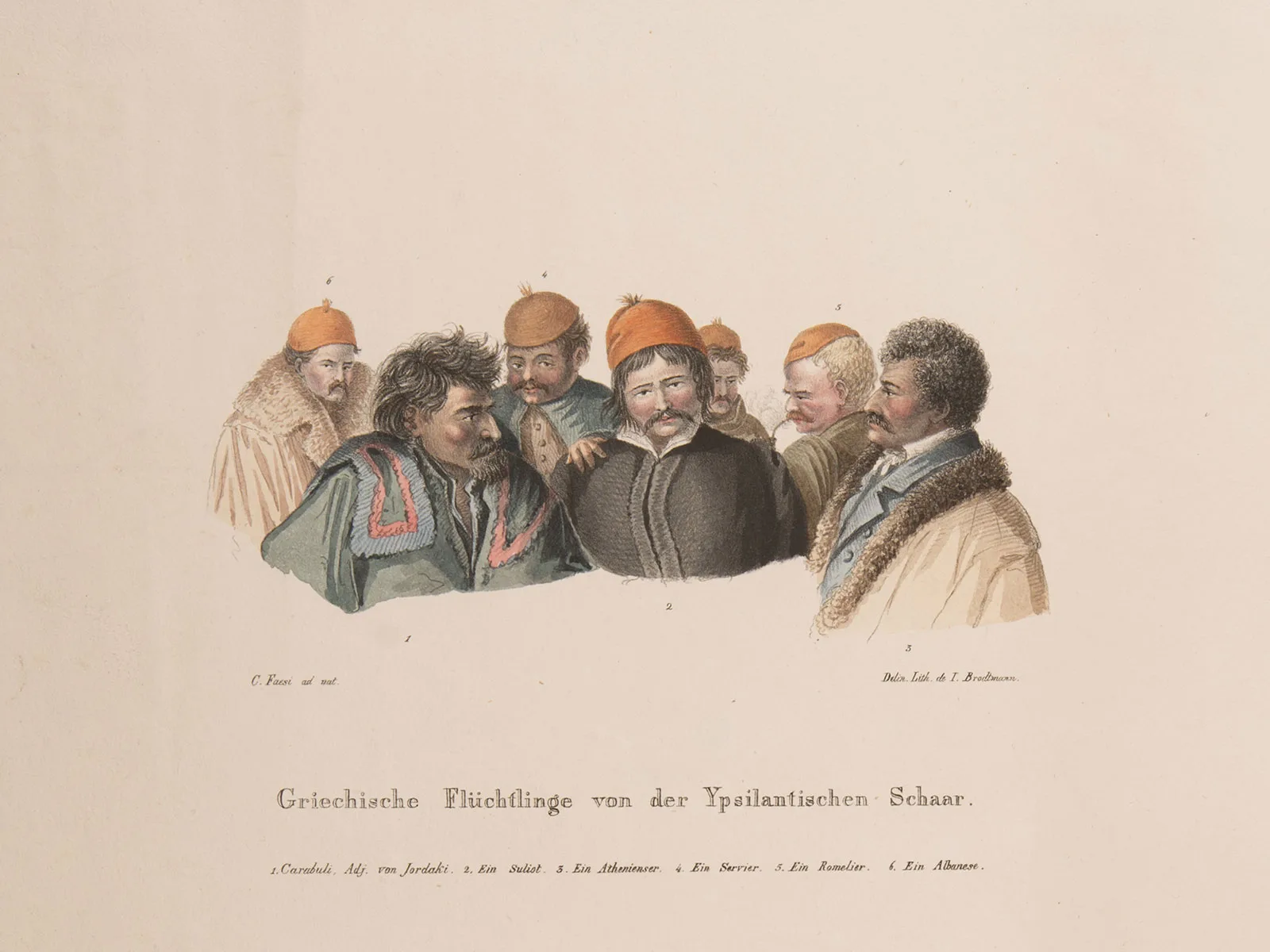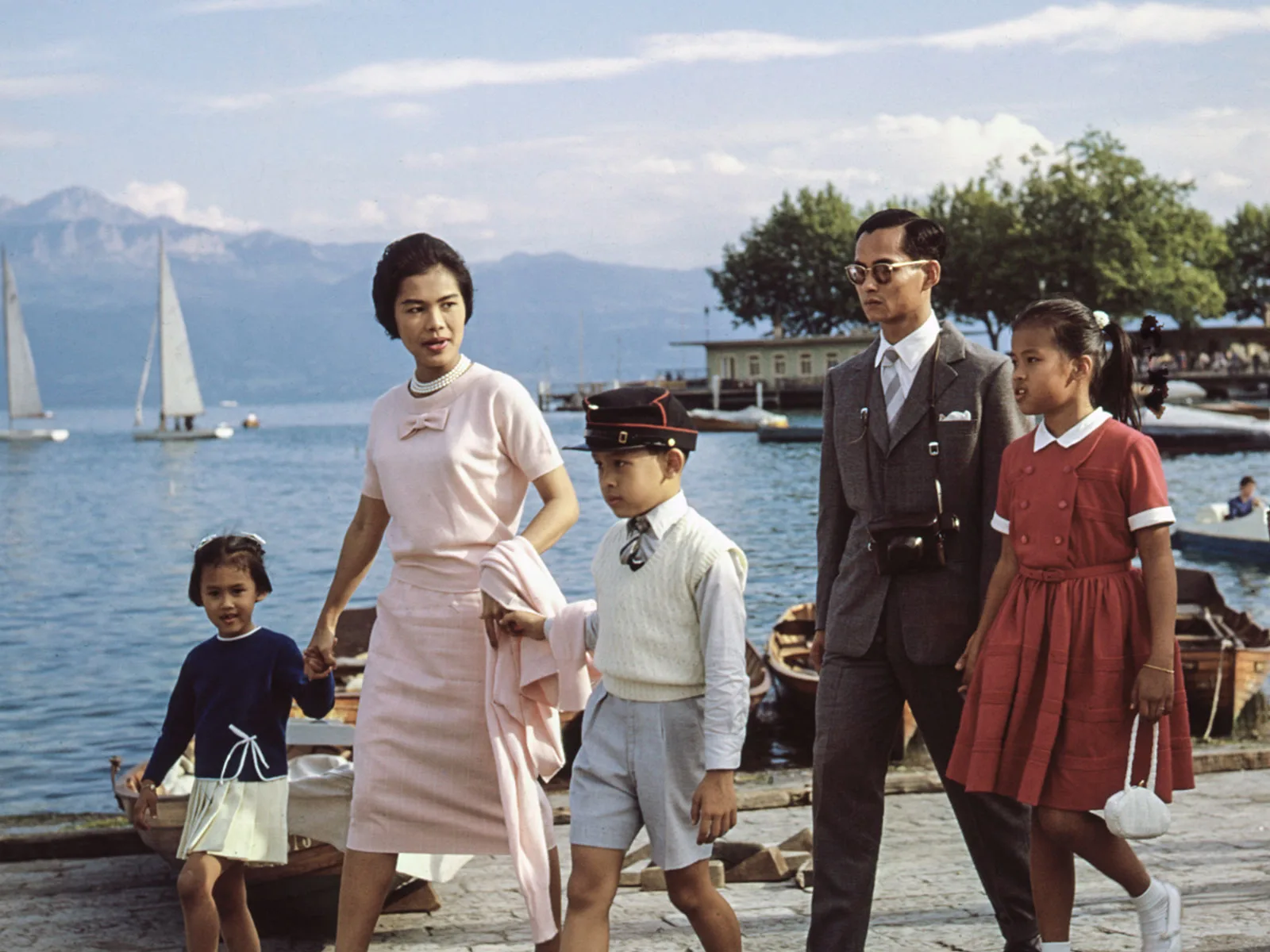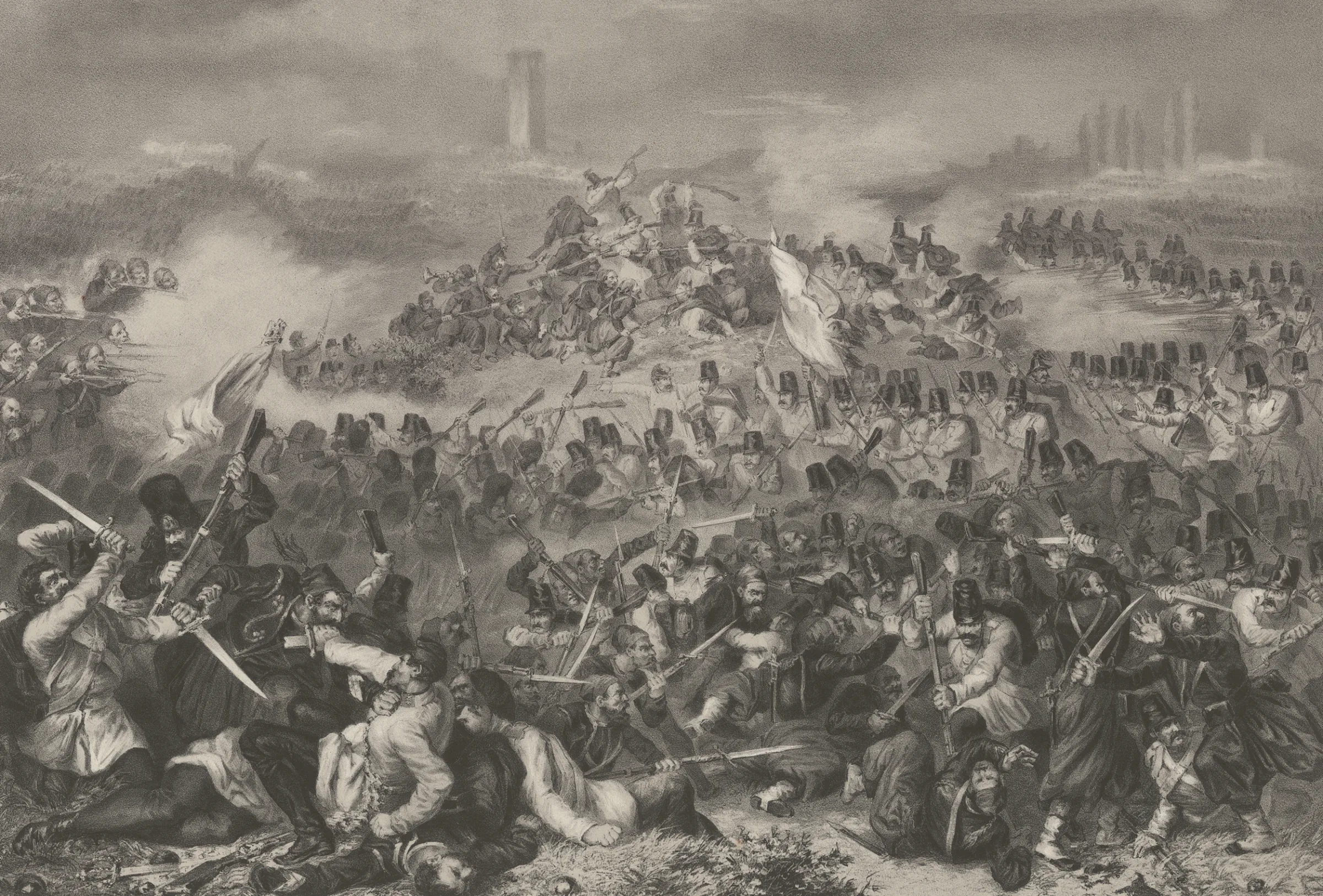
Henry Dunant – A tragic hero
Henry Dunant came into the world on 8 May 1828. This man from Geneva is regarded as the father of the Red Cross. His humanitarian ideas changed the world. Actually, his focus had been on boosting profits with his company in North Africa, but in Solferino this capitalist became an idealist.
Henry Dunant was a co-founder of the Red Cross (ICRC). His book, «Un souvenir de Solférino» (A Memory of Solferino), about the decisive battle in the Austro-Sardinian War lay the foundations for more humane conduct in times of war. The man from Geneva was awarded the Nobel Peace Prize for this in 1901. But anyone who now regards Dunant as an absolute humanitarian would be mistaken. This businessman was spending time in northern Italy due to commercial interests, and it was actually more by chance that he bore witness to the ruthlessness of war there.
Colonial society for Algeria
After a banking apprenticeship, Henry Dunant established a colonial society in 1856. He ordered the construction of a modern mill in Algeria, which had been conquered by France. The plan was that it would later sell wheat flour to Europe. Dunant expected fat profits, and his investors should also benefit from the engagement in North Africa. But the French granted him too little land and water. The project was in danger of collapse. The relevant administration in Paris would not talk to him though, so the businessman decided to approach Emperor Napoleon III directly. However, the latter was not in the city on the Seine but in Lombardy, where he was fighting with his troops alongside Piedmont-Sardinia against the Austrians (see box).
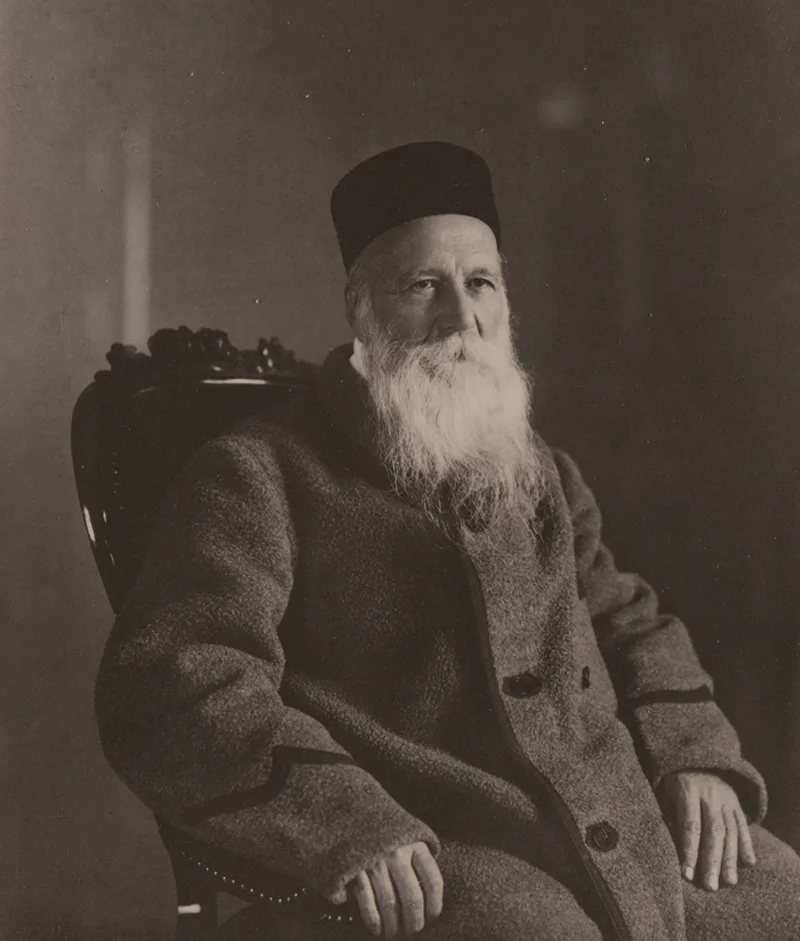
Portrait of Henry Dunant. Photo: Swiss National Museum
Empathy for injured soldiers
Henry Dunant intended to pass a self-composed work of homage to the French emperor at the meeting. «The Empire of Charlemagne restored or the Holy Roman Empire rebuilt by his Majesty Emperor Napoleon III», the document was called with the intention of encouraging the monarch to consider Dunant’s concerns favourably. This meeting never materialised, but the man from Geneva did meet countless wounded soldiers who were not receiving any care. This distress eclipsed his economic ambitions. He began to help the injured. He made no distinction between the warring parties, but lent a hand wherever it was needed most. On his return from northern Italy, he was so preoccupied with what he had experienced that he began to write about it. «A Memory of Solferino» was printed in 1862, with 1,600 copies made. Dunant himself covered the costs. He distributed and sent the book to leading figures in politics and the military. In it the man from Geneva proposed the establishment of an international aid organisation to help the wounded. Dunant’s idea fell on fertile soil. It resulted in the ICRC in 1863.
The Austro-Sardinian War of 1859
The Austro-Sardinian War was fought between Austria and Piedmont-Sardinia, which was supported by France under the rule of Emperor Napoleon III. Piedmont-Sardinia wanted to conquer the Kingdom of Lombardy-Venetia, which had belonged to Austria since the Congress of Vienna in 1815. France supported this venture, partly because Napoleon III had plans for a united Italy under French rule and partly because Nice and Savoy had been promised to him. In May and June 1859, several battles broke out between the warring parties in northern Italy, among them at Solferino. The Austrians lost and conceded Lombardy to Napoleon III in the Treaty of Zurich. Napoleon III handed the territory over to the Kingdom of Sardinia. The victory over Austria was another step on the road to a united Italy. Austria, on the other hand, lost a significant amount of its power in Italy as a result.
In his private life, however, Henry Dunant was not so successful. His company in Algeria had to file for bankruptcy, partly because he had neglected it badly due to his «humanitarian mission». In 1868, he was sentenced by a Geneva court for fraudulent bankruptcy. One year prior to that he had stepped down as ICRC Secretary. This action had been suggested to him, practically forced on him. With no money and no reputation, he began an odyssey through Europe that lasted many years. It was only thanks to financial support from friends and admirers that Henry Dunant did not fall entirely into poverty. At the end of the 1880s, the unfortunate man arrived in Heiden. A small pension from his relatives enabled him to have a modest life in the Appenzell region. In 1895, the eastern Swiss journalist Georg Baumberger encountered Dunant on a walk and wrote about him. The article spread rapidly throughout Europe and his social status was elevated again. Many people had assumed he was already dead and were astonished to find that the co-founder of the Red Cross was still alive. The Russian Dowager Empress Maria Feodorovna granted him an annual pension, which improved the financial situation of the man from Geneva. His reputation rose further in 1901 when he received the very first Nobel Peace Prize, together with French pacifist Frédéric Passy. Dunant died in Heiden in 1910.
Despite a difficult life, Henry Dunant is still regarded to this day as the father of the Red Cross and is revered all over the world. His book, «A Memory of Solferino», prompted efforts to make war more civilised. If that is at all possible.
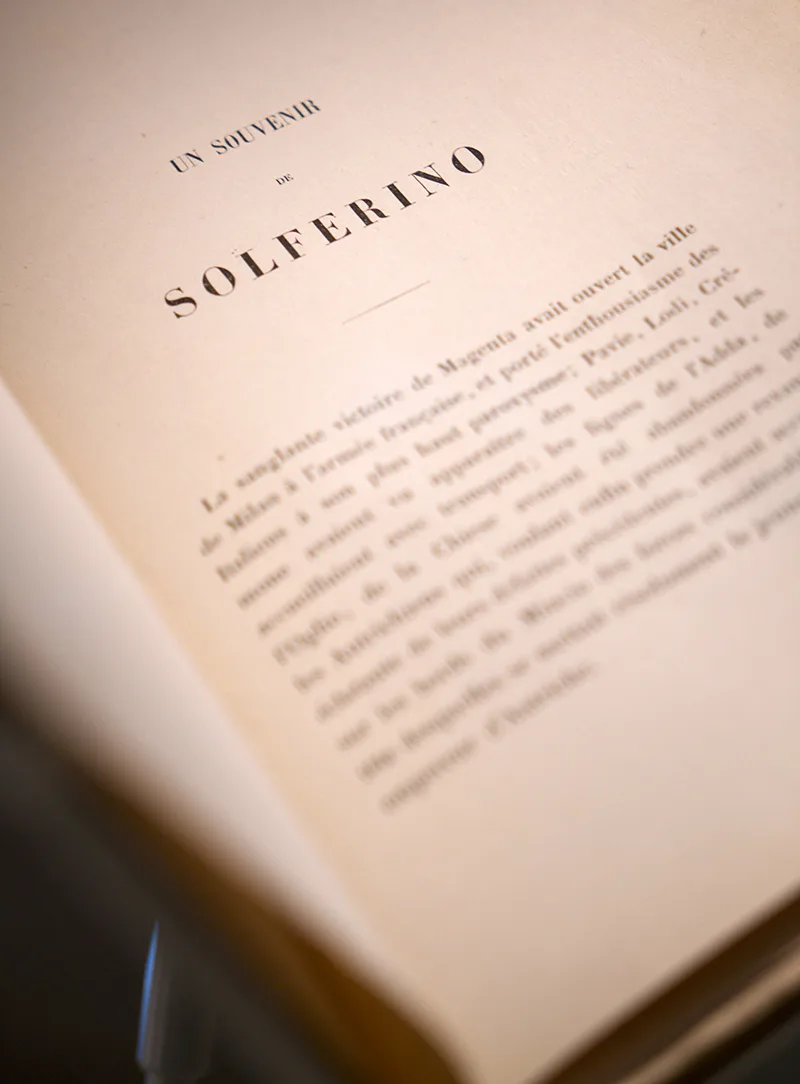
Dunant’s book, «A Memory of Solferino», was the cornerstone for the foundation of the ICRC. Photo: Swiss National Museum

